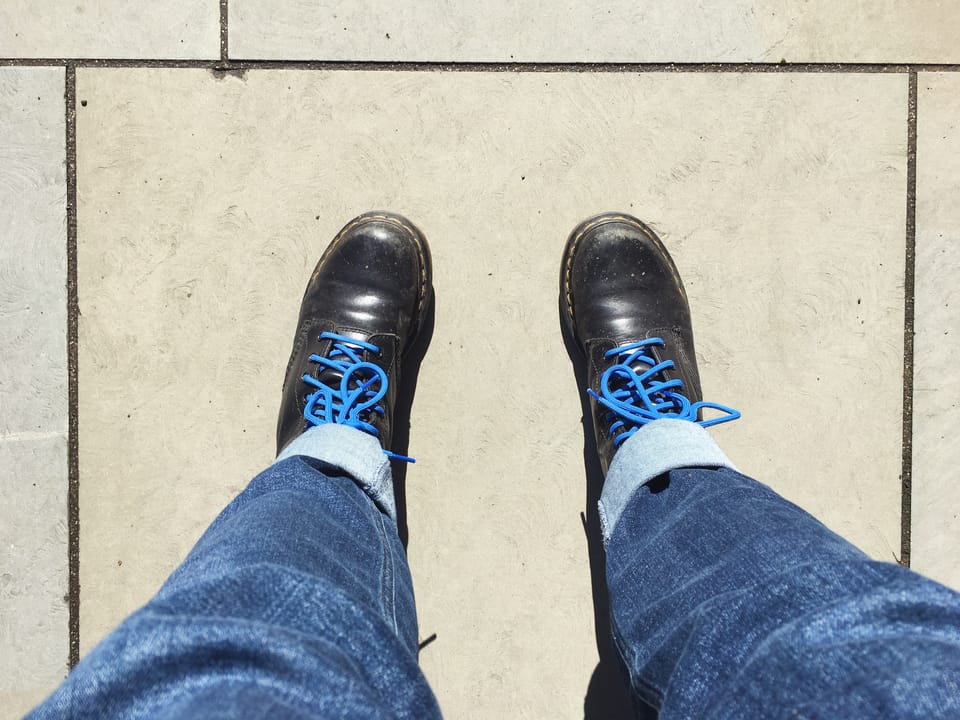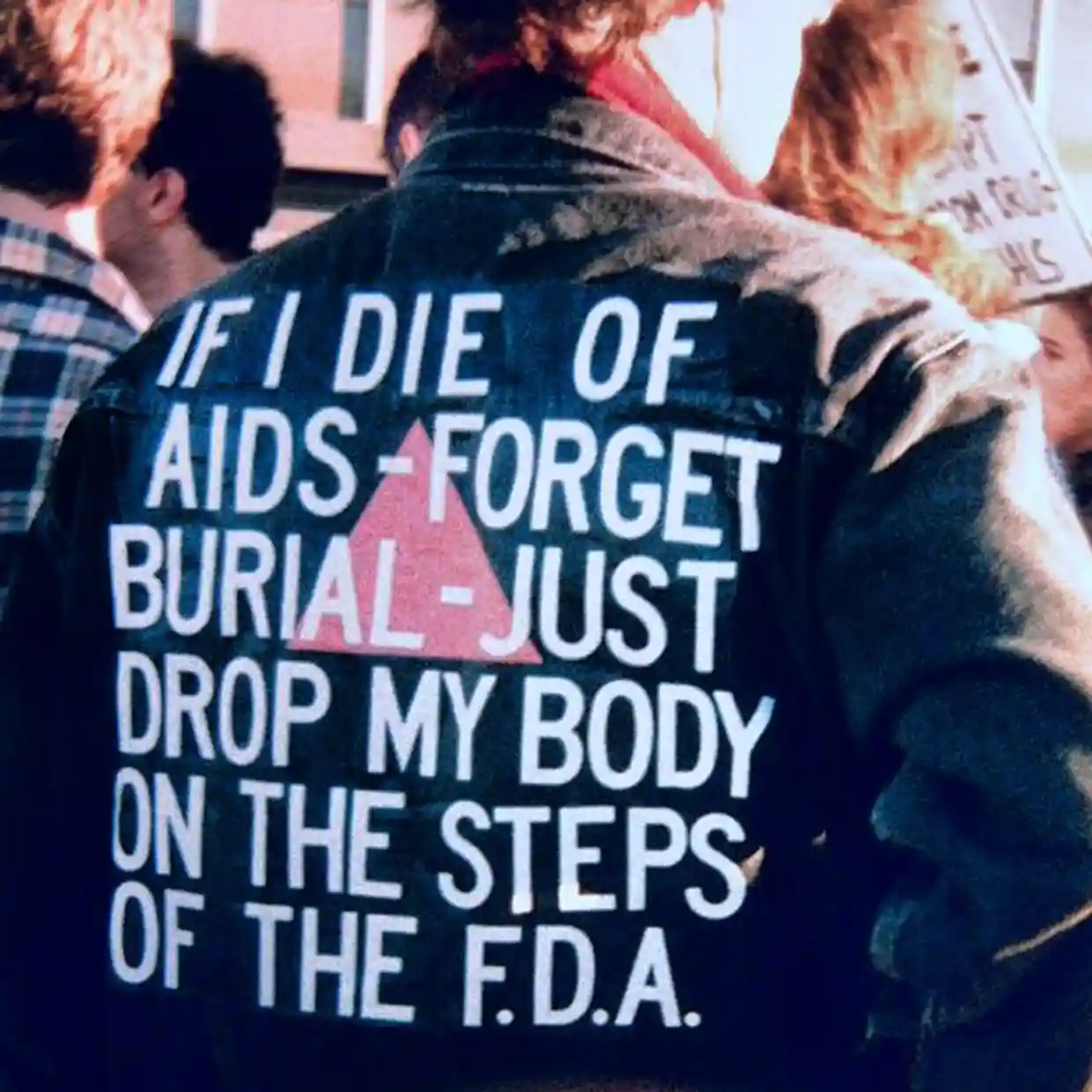Am I mentally ill *because* I'm queer?

[CW: suicidal ideation, mental illness, internalised self-hatred and transphobia, brief mention of murder of trans people]
When I initially began seeking support for my mental health, I was so frustrated to be asked whether I was depressed because I’m queer.
I was upset by the implication (as I felt it was) that being gay is linked to mental illness, that queerness is something I would struggle with. I was outraged to be asked again and again by different medical professionals. Every time it was asked, it felt like there was an attempt to blame my sexuality for my depression. It felt like an attack on the part of myself I loved the most.
I spent years telling medical professionals that I am not depressed because I am queer, that I am not mentally ill because I’m trans. And I don’t think I was wrong, at least in terms of what they actually wanted to know. I didn’t need support because I was struggling with my queerness, I didn’t hate myself because I am trans. I didn’t need to talk to someone about my sexuality; I was certain in my identity, I was proud of being queer.
More recently, I’ve changed my answer. I still explain that I am not depressed because I am queer, but now I clarify that existing in an actively transphobic world does affect my mental health. Being misgendered, reading transphobic headlines every day, hearing about the murder of yet another trans person – these do things trigger panic attacks, intrusive thoughts, and suicidal ideation. But they are not why I struggle with those things in the first place.
Because being trans isn’t hard – being trans in a society that is determined to strip away our rights is.
Since starting testosterone, I feel like I’ve finally clawed myself out of crisis mode with my suicidality. My mental illness hasn’t gone away, I’ve just learned how to manage it slightly better. I’m slowly working on being kind to myself – and believing that I deserve kindness.
I often describe my suicidality as a scream inside my head, and in the quiet of its absence I can hear how horrible the whispered thoughts I have about myself are. I’m left with the realisation of how deeply my self-hatred goes. I knew that I struggled with my self-worth, I’m aware that I say ‘I hate myself’ aloud – almost as often as often as I say ‘I want to kill myself.’
But it’s only now that I can start to figure out where that self-hatred comes from. It’s only now that I’m able to recognise that it might not be quite as separate from my queerness and transness as I claimed.
Aside from being good at school work and academia, my queerness was the first thing about myself that I understood I was allowed to be proud of. I let myself love that part of myself without shame – undoubtedly because of the people I found talking about how being queer was not shameful. I claimed my queerness fiercely.
I have never felt shame about being queer or being trans (outside of the fear about how my parents would react). But while it was easy to embrace my queerness, that doesn’t mean I hadn’t picked up societal messages that I was “wrong” or “broken”, even if I hadn’t linked that to my sexuality.
It’s the parts of myself that I have found easiest to love – being queer and trans – that have helped me love the parts of myself that I feel are less worthy of love. But is my queerness why I hate myself so much in the first place?
I have a deeply held core belief that I am not good enough. Not a good enough boyfriend, not a good enough student, not a good enough journalist, not a good enough son, not a good enough person. And that core belief was fertile ground for self-hatred and the doubt that I am worthy of compassion or care. Seeds that grew into my mental illness.
It’s no wonder that I always feel like I’m behind, like I’m failing.
When I learned that I am queer (and then trans, and then autistic), it felt like my life finally made sense. Looking at my childhood through that lens explains why I have always felt apart, other, like something was wrong with me. And long before I understood why I didn’t fit in, I had internalised the idea something was wrong with me. That I was wrong somehow.
It makes sense that this is where my self-hatred came from – the feeling of being different, even if it would be years (even decades) until I understood the ways in which I am different. So I am not mentally ill because I’m queer; but I might be mentally ill because I internalised the messages from society telling me that core parts of my identity were wrong, the feeling that I needed to try harder, be better, change myself to fit in.
It is easy for me to say I am queer, trans, and autistic, that I am disabled and I have depression and OCD. It is not so easy to unroot the idea that in order to “make up’ for these things that are “wrong” with me, I need to be perfect in every other aspect of my life. I am constantly pushing myself and punishing myself to do more, to be better, all because I know I will be judged more harshly because I am trans and I need to prove that I am good enough.
I recently realised that while I don’t think my queerness is “wrong”, I sometimes treat myself like it is. I hold myself to a ridiculously high standard because I feel like I need to compensate for the ways I “fail” – which include being queer and trans and autistic.
There’s some logic behind this. I know the stats on what percentage of autistic people are unemployed, I know that one in three UK employers wouldn’t hire a trans person. I’m not wrong to worry that in order to survive in a capitalist society, in order to be employable or make enough money to live on, I need to be exceptional enough that people will overlook past the ways in which I “fail”.
I was surprised that clearly some part of me does see my queerness and transness and autism as failures. As much as I love those parts of myself, as much as I wouldn’t change them, I feel like I have to change other parts of myself because of them. It was strange to realise how out of alignment the values I hold are with the way I’ve spent the last few years – my entire life, really – treating myself.
I am never going to please people who think that I am not good enough because I am queer, so why have I been trying? It’s going to take a long time to unpick the belief that I am not good enough, but I am no longer interested in burning myself out trying to “make up” for part of who I am. Not part of myself that isn't a failure in the first place.



- For Trans Day of Having A Nice Snack, I wrote about the dangers of being visibly trans for PopSugar. With trans rights being systematically stripped away, it felt good to write about what trans people actually need right now: action. (Or, failing that, snacks.) I'm especially glad I was able to include this incredible quote from Tuck Woodstock: "Advocate for prison abolition, police abolition, and sex work decriminalization, because those are real, material things that would help trans people."
- Ro White wrote about how to get an abortion if you're trans for Teen Vogue. It's an important and incredibly practical guide to the logistics and emotional impact of accessing safe, legal abortion as a trans person. "A 2021 study found that nearly one in five transgender, gender-expansive, and nonbinary people who have been pregnant attempted to end a pregnancy without clinical oversight, sometimes using unsafe methods."
- In awful but unsurprising news: a report from Media Matters found that from February 2023 to February 2024, The New York Times published 65 articles that mentioned anti-trans legislation in their headline or lead paragraphs. 66% of the articles did not quote even one trans person, and 18% of the articles quoted misinformation from anti-trans activists without adequate fact-checking or additional context.
- I read three books in seven days for the Trans Rights Readathon: The Call-Out* by Cat Fitzpatric (a novel in prose about trans women in New York that explores community accountability), Green* by Alex Gino (a middle-grade story centring a non-binary kid), and Fine: A Comic About Gender* by Rhea Ewing (a graphic novel illustrating Ewing interviews with people about gender and their own explorations.)
- And the book that actually started my books-by-and/or-about-trans-people reading streak was Cleat Cute* by Meryl Wilsner. I absolutely tore through it – every sentence made me hungry for the next. I loved the rivals-to-lovers romance, and I was delightedly surprised by how filthy the book was. (Shout out to Frankie de la Cretaz for their queer sports romance recommendations!)
- This is turning into a book-heavy newsletter: journalist Beth Ashley's debut – Sluts: The Truth About Slutshaming & What We Can Do To Solve It* – is out next month and you can pre-order it now. It's an investigation into the origins of slut-shaming, how it's still affecting us in the 21st century, and how we can have more open conversations about sex. I'm excited to read it!
- Last Friday, The Dyke Project dropped a 30ft banner to say fuck the Cass Review. Both the photos and the caption were very much what I needed to see:

